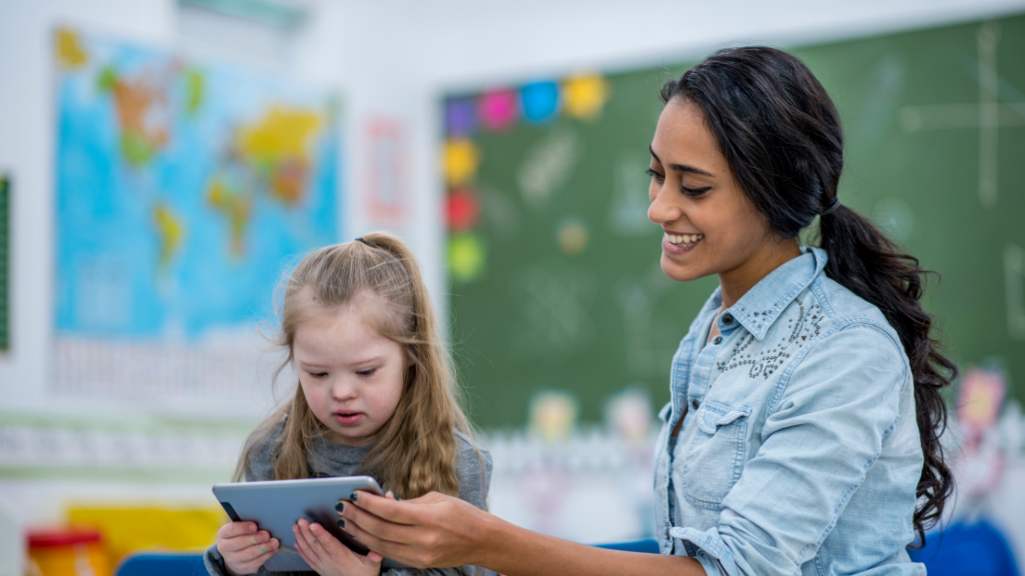The Role of Assistive Technology in the Classroom
Vikash Jain
. 2 min read
People are able to lead lives that are healthy, productive, independent, and dignified, and they are also able to participate in education, the workforce, and civic life thanks to the development of assistive technology, including video chat capabilities. The utilization of formal health and support services, as well as long-term care and the labor of caregivers, can be minimized through the utilization of assistive technology. People are often excluded, isolated, and locked into poverty when assistive technology is not available to them.

Who could Possibly Gain an Advantage from using Assistive Technology?
People with disabilities, the elderly, and those who suffer from non-communicable diseases such as diabetes and stroke are among those who have the greatest requirement for assistive technology. People who suffer from mental health conditions such as dementia and autism, as well as people whose functional abilities are gradually declining over time.
Advantages to People's Health and Happiness, as well as to Society and the Economy
People who have disabilities can reap benefits in the areas of health, well-being, and socioeconomic status from the use of assistive technologies. As an illustration, assistive technologies that provide visual or tactile cues may be useful for individuals who are deaf. People who have trouble learning may gain a better understanding of the material they are studying by using assistive technologies such as audio or video instruction.
Other types of AT include the following:
- Screen readers are software programs that read aloud the content that is displayed on a computer screen
- Screen magnifiers are helpful for people with low vision because they enlarge and enhance the content
- Headphones are a device that improve the audibility of sound for individuals who have hearing loss.
What Different Kinds of Difficulties in Learning does Assistive Technology Try to Solve?
A variety of educational challenges can be overcome with the help of AT. A student who has trouble writing can create a school report by dictating it and having it converted to text by specialized software. This option is available to students who struggle with writing. In addition, a teen who has dyslexia might benefit from an assistive technology device that can read out loud the online training manual that his employer provides.
Expanders of abbreviations and acronyms
These software programs, when combined with word processing, give the user the ability to create abbreviations for frequently used words or phrases, store those abbreviations, and then reuse them. This can help the user save keystrokes while also ensuring the correct spelling of words and phrases that he has previously coded as abbreviations.
Alternative forms of keyboards and other forms of assistive technology
Helpikeys is a programmable adaptive keyboard designed for individuals who have difficulties with learning and motor skills. The keyboard comes with five different overlays, but it can also be programmed to store an additional five personalized layouts of the user's choosing.
Audio Books
Audiobooks can be of great assistance to slow readers in overcoming the challenges of distracted reading, and they can also serve as a helpful guide in the process of comprehending academic concepts such as characterization, plot lines, and phonetics.
Digital math worksheets on a computer
Electronic math worksheets are computer programs that can help a user organize, align, and work through math problems displayed on a computer screen. These programs are referred to as electronic math worksheet software. A speech synthesizer can also be used to read out loud any numbers that are displayed on the screen.
More Stories from
Unveiling the Magic: A Behind-the-Scenes Look at Movie Theaters and Cinema Culture
It is important to remember to enjoy the magic of the movies despite these behind-the-scenes revelations.
Benefits of Defensive Driving: Learn How It Can Save Your Life and Money
This article discusses the importance of defensive driving and its benefits.
The Enchanting Rhododendron: Himachal Pradesh's State Flower
Discover the captivating Rhododendron, the state flower of Himachal Pradesh, India. This vibrant evergreen shrub, native to the Himalayas, paints the landscape with breathtaking colors each spring.
Exploring the Uncharted: Speculative Insights into the World Beyond 2021
This article provides a brief overview of potential geopolitical shifts, technological advancements, environmental concerns, health challenges, economic developments.
Racial Justice and Inclusivity: Promoting Equality in Society
Explore the vital journey towards racial justice and inclusivity as we uncover the challenges faced by marginalized communities and the transformative power of inclusivity.











.png?width=40&aspect_ratio=1:1)

.png?width=40&aspect_ratio=1:1)